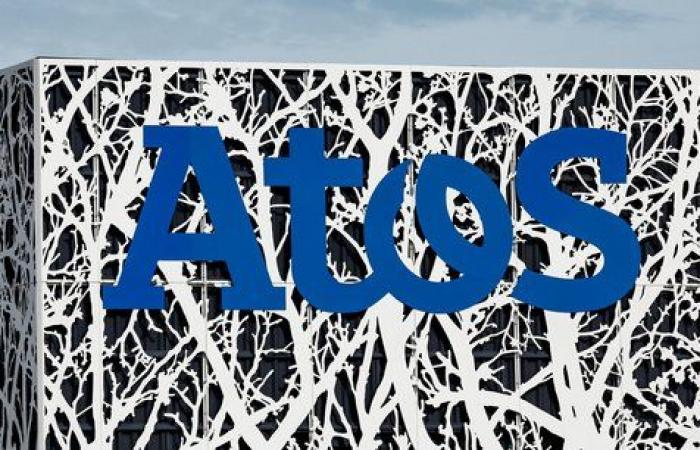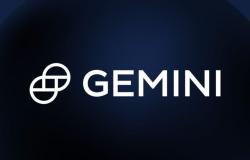Atos lost a call for tenders against stronger than it, Hewlett Packard (HPE) and Orange. A call for tenders intended to provide the Ministerial Agency for Defense AI (AMIAD) with a military AI supercomputer as quickly as possible. AMIAD was faced with an operational emergency with the launch of this first market. And there was no need for a photo finish on the part of the Joint Directorate of Infrastructure Networks and Information Systems (Dirisi), which managed the competition, to decide between the two candidates. Because, according to our information, the French digital technologies group was the lowest bidder in terms of purchase price (a price difference of around 15% to 20%) and maintenance, and technical performance on key characteristics. (two to three times less efficient) and, finally, delivery times (several months for delivery expected in less than a year).
Sébastien Lecornu on the grill
The result of the competition is certainly cruel for Atos but the copy of the French group is well below that of HPE/Orange. This led Dirisi to select the HPE supercomputer, equipped with a secure software layer (cyber) provided by Orange. He informed, as he should, the Ministry of the Armed Forces. The Hôtel de Brienne must now validate or not this contract estimated at more than 100 million euros (between 100 and 200 million euros) while this selection has raised a wave of indignation within the political class, which criticizes this choice in the name of national sovereignty.
The Minister of the Armed Forces Sébastien Lecornu also expects to be questioned very quickly on this issue, certainly from this Monday afternoon during his hearing by the Defense Commission, which must hear him on the 2025 budget. very legitimate questions since this equipment is very critical: the armies will test the AI embedded in weapon systems while maintaining a high degree of protection. Defense industries will also be able to use it and feed it with their data.
No recourse from Atos
However, the minister risks recalling certain obvious facts with which the AI ecosystem is already familiar. Starting with the hegemonic position of the American group Nvidia in terms of GPU chips (Graphics Processing Unit) equipping supercomputers. It has a market share of approximately 90% of open global market. For this contract, the group is also the major supplier of HPE but also of Atos by carving out thelion’s share (between 50% and 70% of the order value, according to several sources). Very concretely, a GPU chip sells individually for around $40,000 (i.e. 6 to 20 times more expensive than a high-performance processor). Sovereignty will first involve the creation of a GPU chip industry on a European scale. Which is far from won.
In addition, all personnel approaching this supercomputer, installed in the Mont-Valérien fortress in Suresnes (Hauts-de-Seine), must be authorized by the “top secret” Ministry of the Armed Forces. Clearly, we will have to show our credentials to install this classified supercomputer, then take care of its maintenance in operational condition (MCO). This supercomputer, of which Orange takes care of the most sovereign part, will be “the largest calculator dedicated to AI and classified in Europe! »the minister explained last March in an interview given to Echoes. The supercomputer can also be used by companies in the defense industrial and technological base.
Finally, Atos, which had fifteen days to file an appeal, should not resort to it, according to our information. He has not done so at this stage. There is no question of getting angry with the State, one of its major clients, even if the blow received was hard to take. The French group nevertheless continues to question the price proposed by HPE, which it suspects of not making money with this contract but with the ambition of snatching an emblematic commercial reference in France from Atos. To see… The French group can be proud of its recent successes such as the supply of a supercomputer to the GENCI (Grand Équipement National de Calcul Intensif) and the National Center for Scientific Research (CNRS) but also to Airbus and EDF.
The State ready to support Atos
This competition, however, was a scathing revelation for the State: Atos is not performing well in terms of AI supercomputers. Also, the ministry has the ambition to build as quickly as possible an industrial and technological policy plan to help Atos become more competitive and, consequently, to create a French player for questions of sovereignty in this area. Because in about two years, it will be necessary to change the HPE and Orange supercomputer, which will be outdated. AMIAD will be allocated 300 million euros per year across the entire military programming law (LPM), which covers the period 2024-2030, to carry out its mission.
As part of the LPM, the objective pursued by the Ministry of the Armed Forces through the development of AI is to ensure that “armies can autonomously process the flow of data provided by the sensors at their disposal and thus consolidate their capacity to assess strategic and tactical situations”. As a reminder, the finance law for 2024 must devote 130 million euros to defense AI. A budget which will be doubled by the end of the LPM, which provides a total of 2 billion euros dedicated to AI. In 2026, nearly 800 people will work on AI at the Ministry of the Armed Forces.






